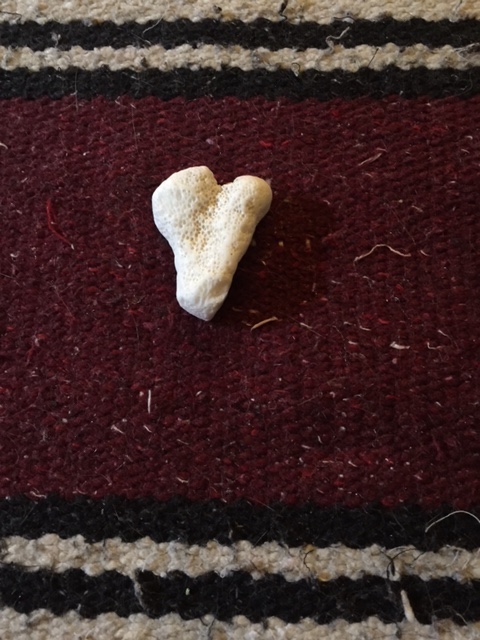 What does healing look like in the dream world? Dreams reflect the changes that are happening all the time, in our physical bodies and in our spiritual lives. For me, those changes have been dramatic in the past couple of years, and recently I had a wonderful dream, which gave me a deeper trust in the process of change itself. I dreamed about the wisdom of wolves.
What does healing look like in the dream world? Dreams reflect the changes that are happening all the time, in our physical bodies and in our spiritual lives. For me, those changes have been dramatic in the past couple of years, and recently I had a wonderful dream, which gave me a deeper trust in the process of change itself. I dreamed about the wisdom of wolves.
Thanks to this dream, I can believe that authentic healing is going on in my body and spirit. I’m especially grateful because the dream not only helped me to experience this healing directly, but also gave me a restorative image of death and renewal that truly resonates. I will hold this image like an open door inside myself, through which powerful emotions can come and go. Because of the dream, I can sense the small voice of my own life rising to meet the wild song of all life—just as the howl of one small wolf rises to meet the music of the whole pack.
I’ll share some of the changes that have been happening in my waking world, followed by the dream and its resonance. Please howl along (leave a comment), if the song speaks to you…
For the past two years, health problems have shaken up my life: heart damage, deteriorating muscles in my upper body and neck, neurological issues, migraines and stroke-like symptoms, digestive difficulties that drained the life out of me… There’s no certainty at all about where this is going. My disease is rare, and doctors have no idea what the progression will be. When my heart function seemed to be failing steadily, the prognosis was five to ten years, or less. When I lost too much weight and was just too frail to function, I couldn’t imagine surviving more than a year or so. Some days, it felt like I might be dying pretty soon—but some days that just seemed too melodramatic to believe. Often, I felt almost normal, just with a stiff neck, a tummy ache, and some clumsiness and weakness. Then, my heart stabilized, at least for the time being. I started adjusting to most of my symptoms with less fear. It became possible that I might live for quite a while. But I can’t know for sure, of course. Overall, I’ve just had to accept the chaos within myself.
I had to let go of my ambition for the future. I had to let go of defining myself as either “healthy” or “sick.” I had to wait on the threshold: tired, confused, hopeful, peaceful, constantly aware of the reality of death, sometimes numb, sometimes afraid… existentially baffled. There was, and is, a kind of grace in the open-endedness of my situation, even though some aspects of the process have been lonely—impossible to share with others. Sometimes, all I can do is immerse myself in the unknown, and wait.
I haven’t been remembering many dreams—which contributes to the general uncertainty. My sleep is shallow and disrupted by discomforts, but most of the dreams I’ve been able to remember could be classified as “death dreams.” I’ve dreamed, over and over, about packing for a long journey “home,” with my deceased parents coming to accompany me. From my experience in hospice work and spiritual direction, I know that these kinds of dreams are typical for people who are literally getting ready to die, but they’re also common for people going through life transitions of one kind or another. The death is just as often metaphorical as literal: one part of my life is dying, my deceased loved ones are helping me on this journey, and my ultimate goal is a sense of “home,” a sense of knowing I’m in the right place.
So, are the dreams literally predictive of death, or metaphorically describing the experience of my present life? The situation is complicated by the fact that dreams often reflect our priorities, the things we’ve been thinking about—and I’ve been thinking a lot about death. Whether it comes tomorrow or twenty years from now, it’s real and it’s on my mind. These dreams have a healing quality, because they’re reassuring in an ultimate kind of way… but they’re repetitive, and I haven’t really gotten beyond packing, or riding in a car with Mom and Dad, on the way…
So what has changed recently that would invite a new kind of healing dream? Where did the wolves come from? Recently, I’ve been feeling healthy. It’s weird, because my upper body is still deteriorating and painful, and I still have many of the symptoms I had before. But my heart seems steadier, my digestion has settled down for now, and I’m getting stronger. I walk long distances several times a week, and I can feel the muscle tone all over my body (except in the areas affected by the disease). Maybe I’ll die tomorrow, or maybe I’ll live forever. I’m appreciating other people, and myself. I feel that I belong to my life again. I’m allowing my vulnerability to be an invitation to others: Let’s all open up a little, find what’s most authentic in ourselves, share our challenges and gifts, be at home with uncertainty because it allows for new possibilities.
So, I have a dream…
Howl:I look behind some bushes near my campsite, and I’m stunned to see a full-grown wolf—sitting up at first, then lying down as if unconscious, in a shallow pool of icy-cold water with decaying leaves at the bottom. I think she might be dead… but she is still breathing. She has chosen to lie in this freezing water—why? Perhaps she is dying, and is trying to hasten the process and numb her pain? It is hard to see her die, but perhaps she is trying to heal herself somehow. It wouldn’t be right for me to interfere, but I mention her to others, because I’m concerned and hoping someone will know why she is here or how to help her.
When I return to check on her, I hear sounds coming from her hiding place. A veterinarian—a middle-aged woman in a white coat—is working over the wolf, doing CPR. The wolf’s heart must have stopped! But, the vet can revive her. Soon, the wolf stands unsteadily, shakes herself, then seems to regain her strength. Other wolves gather around—and other humans, too. Everyone seems excited about the successful healing. Spontaneously, playfully, the vet lets out a howl, and several other people pipe up, too. They don’t really sound very wolf-like, and the wolves look away, as if embarrassed for them.
Quietly, I try a little howl myself. It begins with just a murmuring sound, and then rises to a hollow, resonant tone that comes from deep within me—gentle, tentative, but clear. There’s no contrivance or exaggeration—I let myself feel the wolf-ness inside me, and then release the wolf- song. I sound like a small, cautious wolf.
Now, I notice a wolf pup—very shy and slightly awkward as if she hasn’t yet grown into her body. Her fur is a soft gray, lighter than the other wolves. She’s sitting on a flight of stairs (even though we’re in the woods). Her ears prick up at the sound of my howl, and her whole body trembles, alerted. She looks at me with intent eyes, as if trying to determine whether my howl is a true howl. Can she trust it? She decides to trust—closes her eyes, and listens. Then, she tips back her head and begins to howl with me. She has never howled before, and she pours herself into the sound—high, sweet, rich and pure. The other wolves join her, and then the humans. We are all howling together and I can feel my heart expanding with the gorgeous howling of the pack.
When the howling is done, there’s a moment of stillness. I realize that these wolves are completely at ease with human beings. Apparently, a woman has opened her house to them, so they can come and go as they please. Now, the wolves (including the pup) walk into the open door of that house—across the threshold. They enter without fear. I don’t see the woman who owns the house, but I know that she keeps the door open.
What are wolves? They are very wild animals, but very social, deeply connected to one another. I’ve had a funny relationship with wolves, because several years ago, when I asked for a “spirit ally” to appear to me, I had a distinct image of a subway door opening to reveal a wolf. A wolf as a spirit ally seemed like a cliché, and I wanted something more unusual, maybe a sloth or a wombat. But a wolf showed up. And the wolf wasn’t always friendly. When I asked the wolf for help, the wolf said, “You don’t need help.” In dreams, sometimes a wolf would attack me and I’d rush into the house and try to slam the door—until, finally, I held my ground, offered my arm and said, “Go ahead, eat me.” When the wolf took a bite of me in a dream, it hurt, but being eaten up wasn’t so bad. Another dream came after that, and the wolf and I were on better terms. I have a history with dream wolves, but this last dream is new to me. Continue reading













